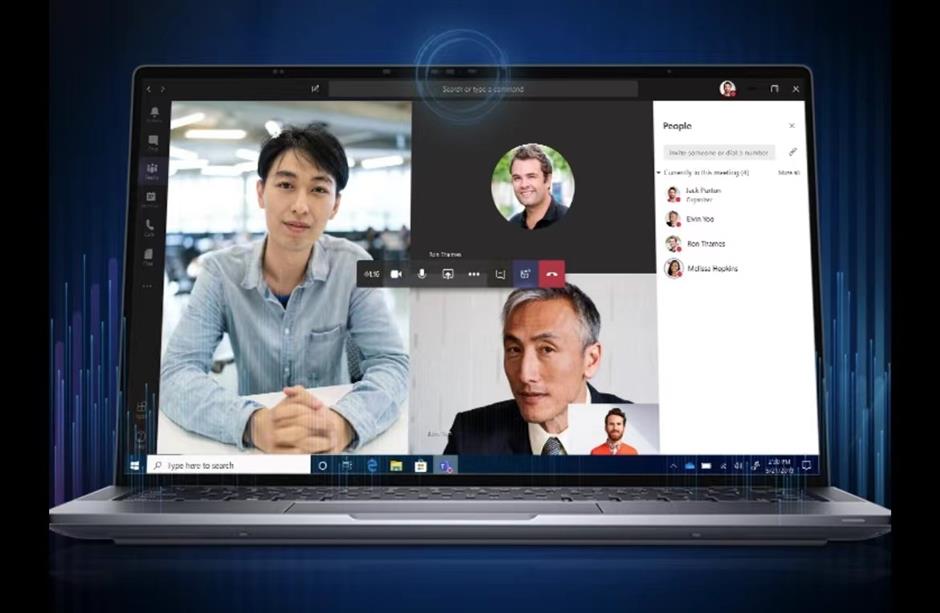Pandemic reshaping how tech giants look at customers, products

Dell's new laptop with AI-powered noise reduction features.
Tech giants are tapping into the commercial tech device market in China as the COVID-19 pandemic reshapes the workplace, with two-thirds of enterprises adopting a hybrid work model.
New products include business-oriented laptops, desktops, tablets, synchronization and security software.
On Friday, Dell Technologies launched a series of new products optimized for the hybrid work model.
Demand for flexible working models, online learning and other tools for the digital economy is booming in China, said Dorothy Tao, Dell's vice president.
Two thirds of Chinese enterprises began adopting hybrid work models after the pandemic hit, according to Dell and industry analysts.
Shanghai-based trip.com officially rolled out its hybrid model in March, the first Chinese tech major to do so.
Many other companies quickly followed as the country's digital transformation met pandemic prevention requirements to create a shift in the way we work and shape a new work-life balance.
Dell's new releases, covering business laptops and portable workstations and featuring smart anti-peeping screens, wireless charging, noise reduction for online conferencing, flexible design and enhanced battery life are suitable for for employees working in coffee shops or at home.
Dell's new products feature AI software for business coordination, privacy protection and data security.

Huawei has renamed its consumer business division and released a new tablet for enterprise users.
Huawei this week renamed its Consumer Business division Terminal Business to mark its shift towards the commercial sector.
Huawei's decade-old Consumer Business now has a new start. The company plans to find more institutional clients such as government bodies, as well as more enterprise customers, said Richard Yu, head of the new Huawei Terminal Business.
Huawei, facing a strict US tech ban, saw consumer sales decline in 2021.
Huawei offers a complete ecosystem from hardware to software.
Its Terminal Business covers monitors, tablets, computers and its own HarmonyOS system, targeting the government, education, medical, manufacturing, transport, finance and energy sectors.
It says Terminal Business' "DNA" includes "quality, intelligence and reliability."
















